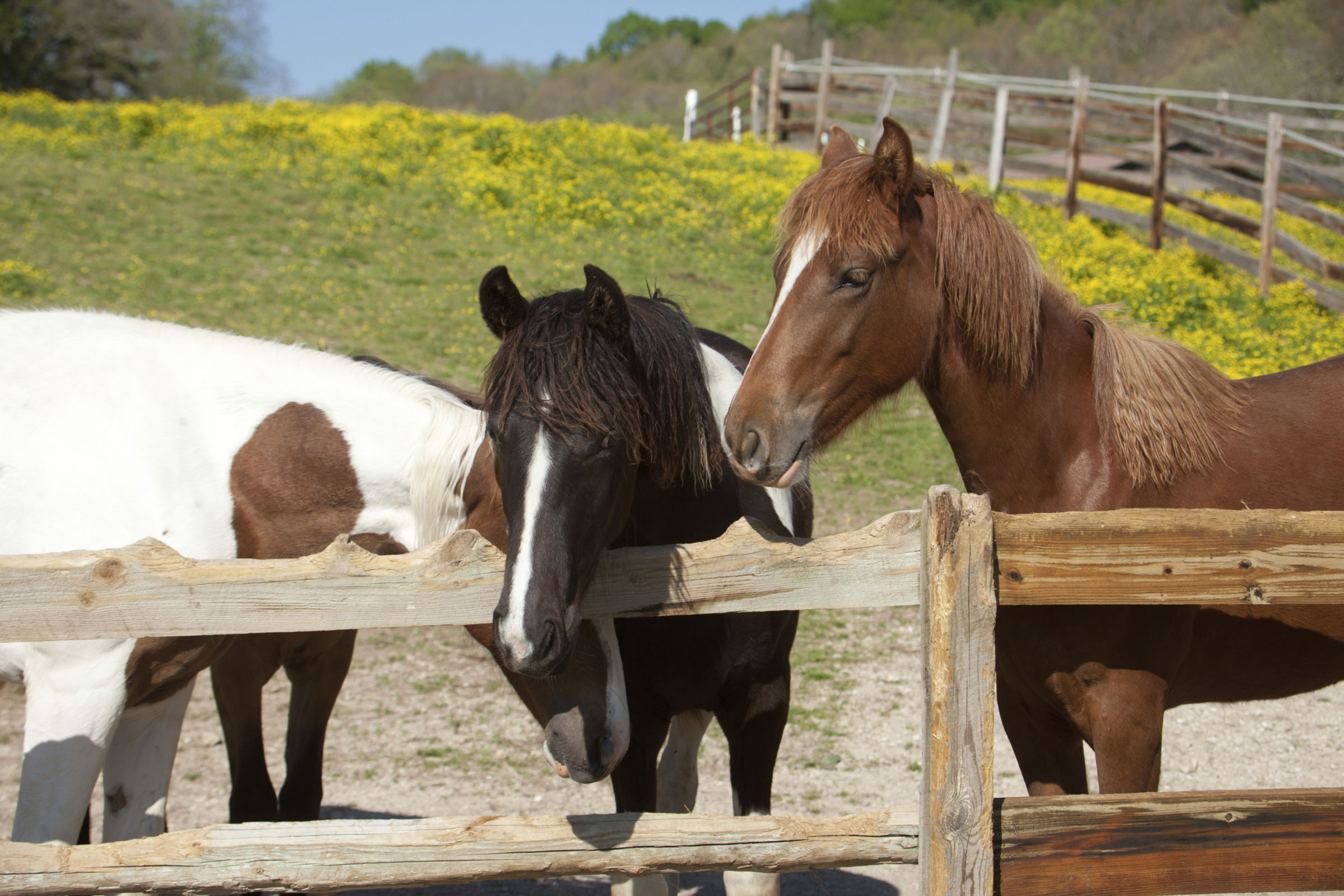
Many horses chew wood fencing, especially when confined in small areas. They can destroy a fence very quickly with this bad habit.
Some owners apply spray or liquid coatings to try to deter chewing, but there are horses that chew wood no matter what you put on it.
Some of the things people try (like old motor oil) are toxic; don’t use them as chemical chewing deterrents. Use a spray or liquid that is approved for horse areas.
A better, safer way to protect wood fences is to cover the posts, poles or boards with small-mesh chicken wire. Horses can’t chew through it, and it’s unpleasant on their teeth so they quit trying to chew the wood beneath it.
For instance, a wire fence with a top pole or board can be readily protected by covering that top pole or board with chicken wire, cutting it into strips the proper size with wire cutters. It can be stapled to the pole or board at frequent intervals so there are no loose patches or protrusions—just a smooth surface that the horse can’t grab hold of.
Use staples that are large enough to hold securely and never pull out. When rolling the strips along the pole/board/post, all cut edges should be tucked under, making sure no loose edges stick out that a horse could pull at or hurt himself on.
Even with the chicken wire in place, a non-toxic, anti-chew spray or liquid can be applied to the wooden poles, posts or boards periodically. That will help the wood fence last a long time.
Chicken wire protection is very cheap compared to replacing chewed-up boards, posts or poles. A roll of wire will cover a lot of fencing when cut into proper-size strips. Staples and a staple gun will be another expense, as will your time, as are chewing-deterrent sprays or liquids. But when you weigh these costs against having to repair or rebuild the wood fence, it’s obvious that the chicken wire is cheap insurance—giving a much longer life to your fence.


